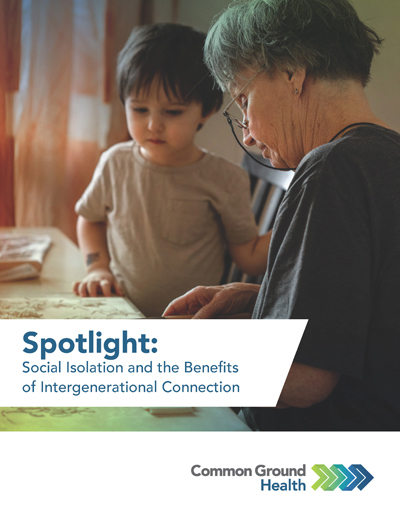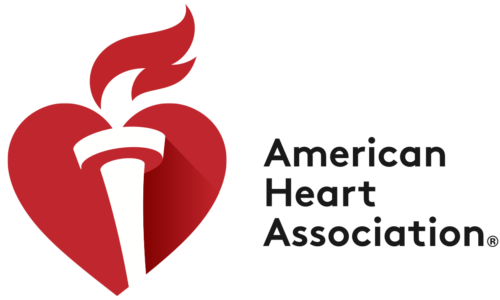Adults are struggling with social isolation and loneliness

Some adults are struggling with social isolation and loneliness in the wake of the COVID-19 pandemic. That’s according to a new data spotlight, called Social Isolation and the Benefits of Intergenerational Connection, which was released today by Common Ground Health.
The findings come from the 2022 My Health Story survey of residents. While people of all ages reported feelings of loneliness and isolation, those 50-64 reported isolation or loneliness at the highest rate (27%). Additionally, those with incomes of less than $50,000 and those with a bachelor’s degree or higher reported social isolation at the highest rates.
Major life changes contribute to social isolation among older adults. These include retirement, health challenges, and living alone due to family changes. For younger populations, social distancing and school and employment disruptions from the pandemic also contributed to feelings of loneliness. Increasing use of technology by all populations can prevent in-person connection.
“So many of our neighbors are struggling,” said Wade Norwood, CEO of Common Ground Health. “This spotlight validates the experiences of those who have had a really difficult time and who have felt a lack of support from their communities over the past few years.”
The social isolation spotlight is released following the U.S. Surgeon General’s 2023 advisory recognizing the harms of disconnection on our mental, physical and societal health. That advisory is titled “Our Epidemic of Loneliness and Isolation: The U.S. Surgeon General’s Advisory on the Healing Effects of Social Connection and Community.” It identified that the mortality impact of social disconnection “is similar to that caused by smoking up to 15 cigarettes a day.” The advisory also notes that social isolation accounts for $6.7 billion in excess Medicare spending, largely due to increased hospital and nursing facility spending.
Other spotlight findings included:
•My Health Story 2022 Survey respondents who reported feelings of isolation or loneliness were more likely to rate their physical health and their emotional health at fair or poor levels.
•Higher percentages of people reporting concerns of isolation or loneliness also reported concerns about feeling stress or overwhelm, anxiety or fear, depression or sadness and helplessness or hopelessness.
•Those who reported being isolated were more likely to disagree or strongly disagree with the statement: “Where I live gives me a sense of community.” This may reflect a diminished sense of belonging in their community.
•Family caregiving has been linked to social isolation and loneliness. On the survey, one out of every three people who were a parent or guardian of a child or children under 18 reported feelings of isolation or loneliness. Additionally, nearly one out of every five caregivers of another adult reported feelings of isolation or loneliness.
•Higher percentages of people reporting isolation said they had received support from doctors, counselors and other professionals and from others who faced the same challenges.
The spotlight suggests governments, communities and individuals should promote policies and programs that build intergenerational connections. It also identifies promising local programs doing this work.
“In school, work, and recreation, our daily lives are age-segregated and we miss out on learning from people of different generations,” said Melissa Pennise, associate director of strategic initiatives. “Such programs as the St. John’s Collaborative for Intergenerational Learning, Clarissa Uprooted and Generation 2 have served as antidotes for social isolation. We need creative solutions like these to bring generations together and to heal the social isolation we are seeing.”
More than 3,700 people aged 18 and older took the My Health Story 2022 survey over a five-month period in 2022. The data in the spotlight includes survey responses from Chemung, Livingston, Monroe, Ontario, Schuyler, Seneca, Steuben, Wayne, and Yates counties. Read the entire data spotlight at http://commongroundhealth.org.
Provided information





